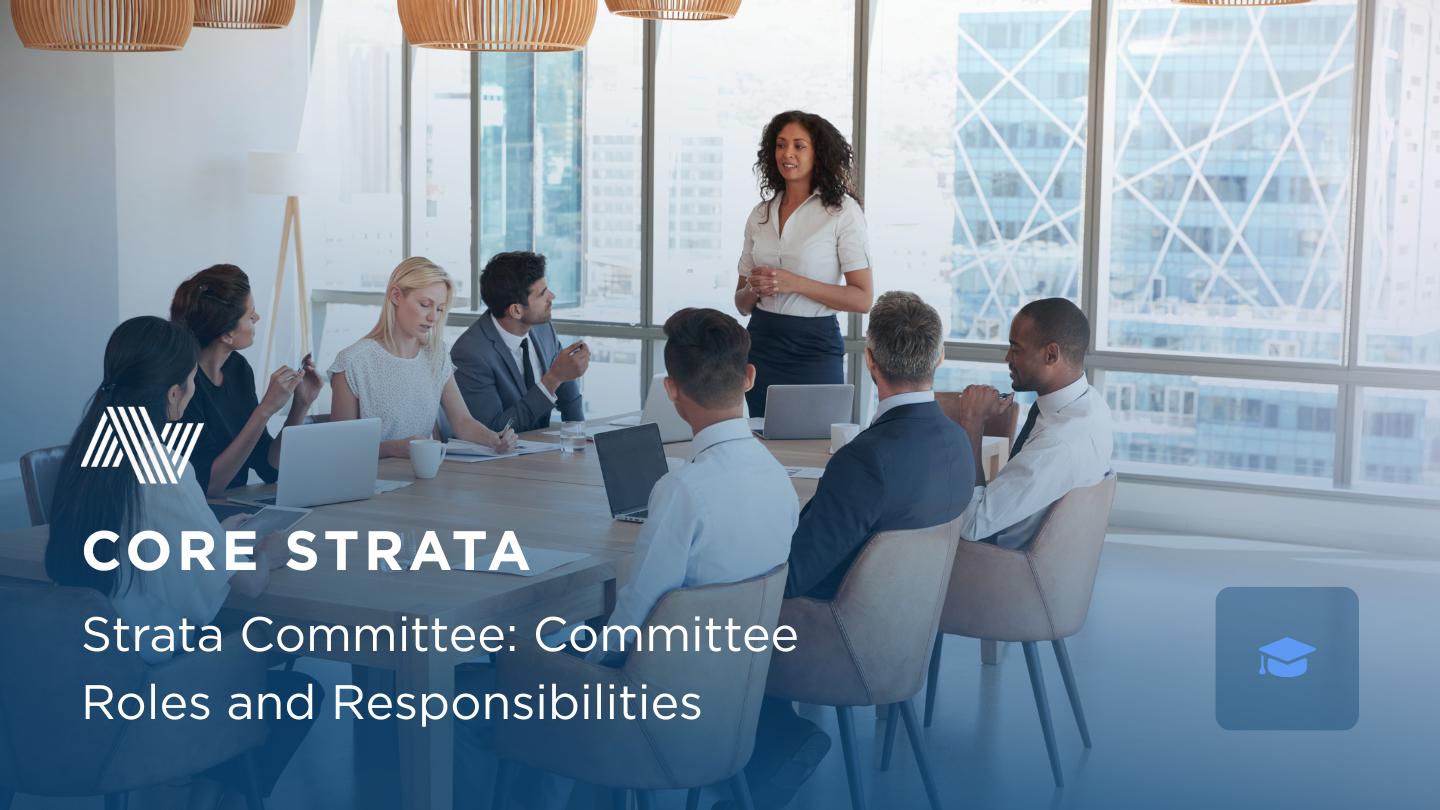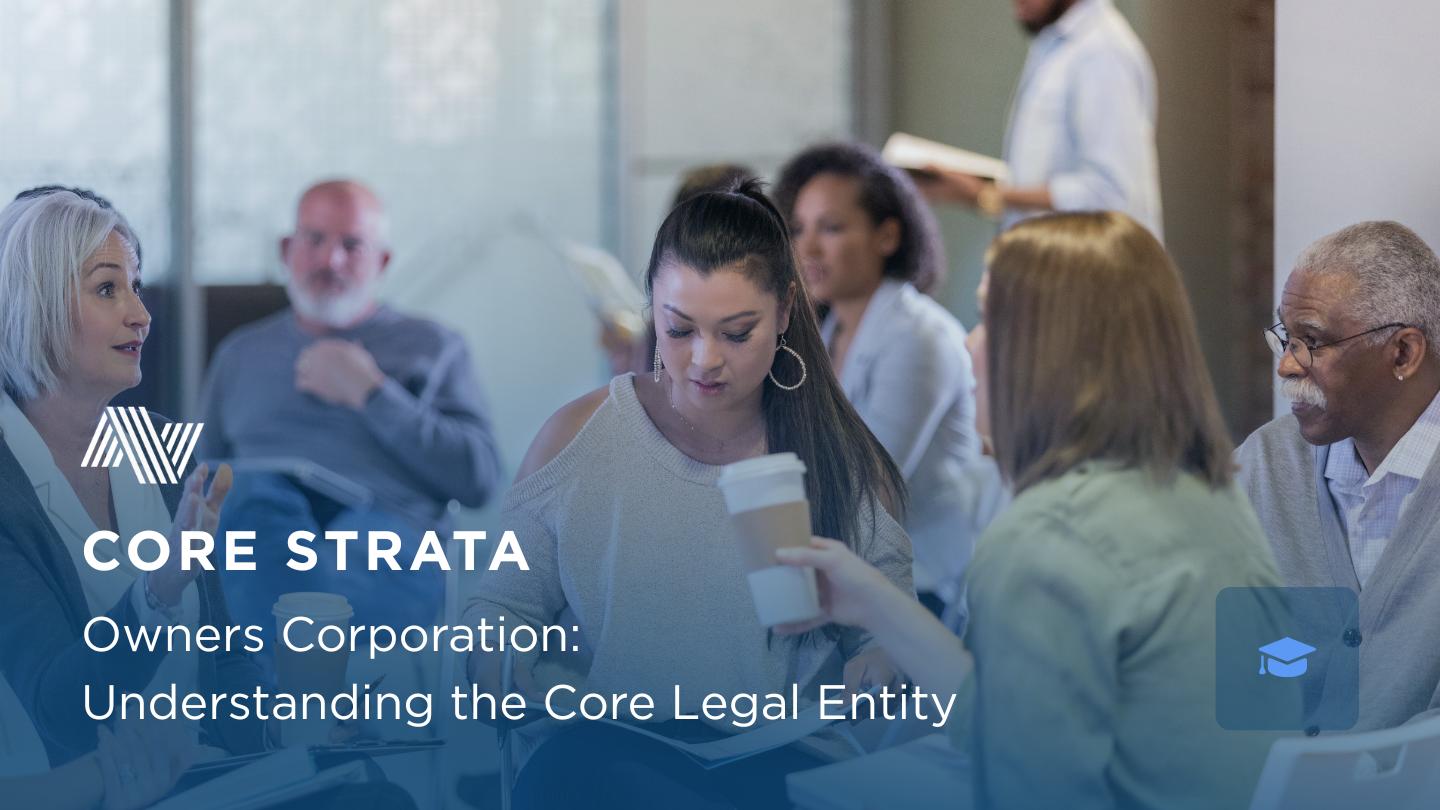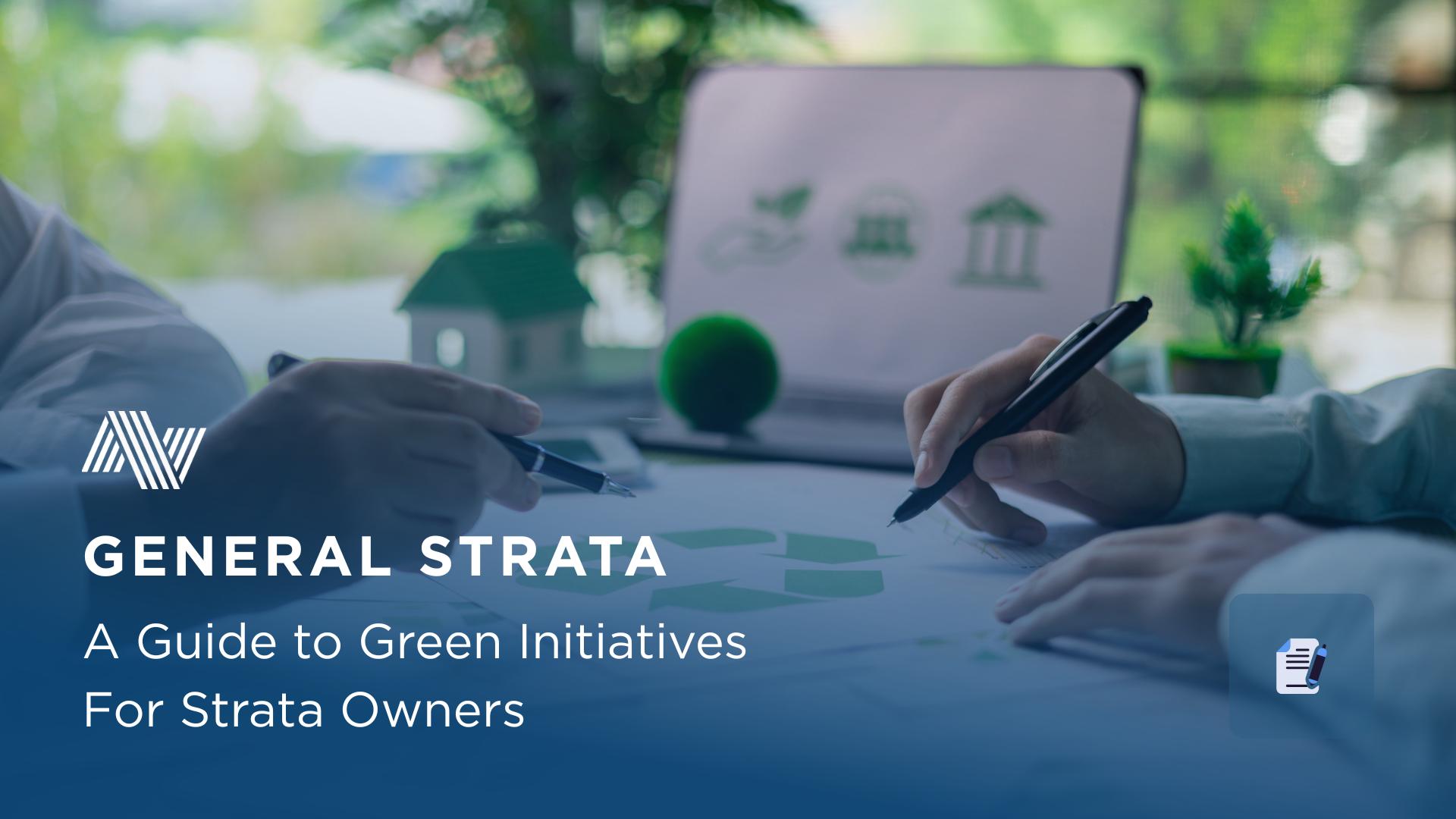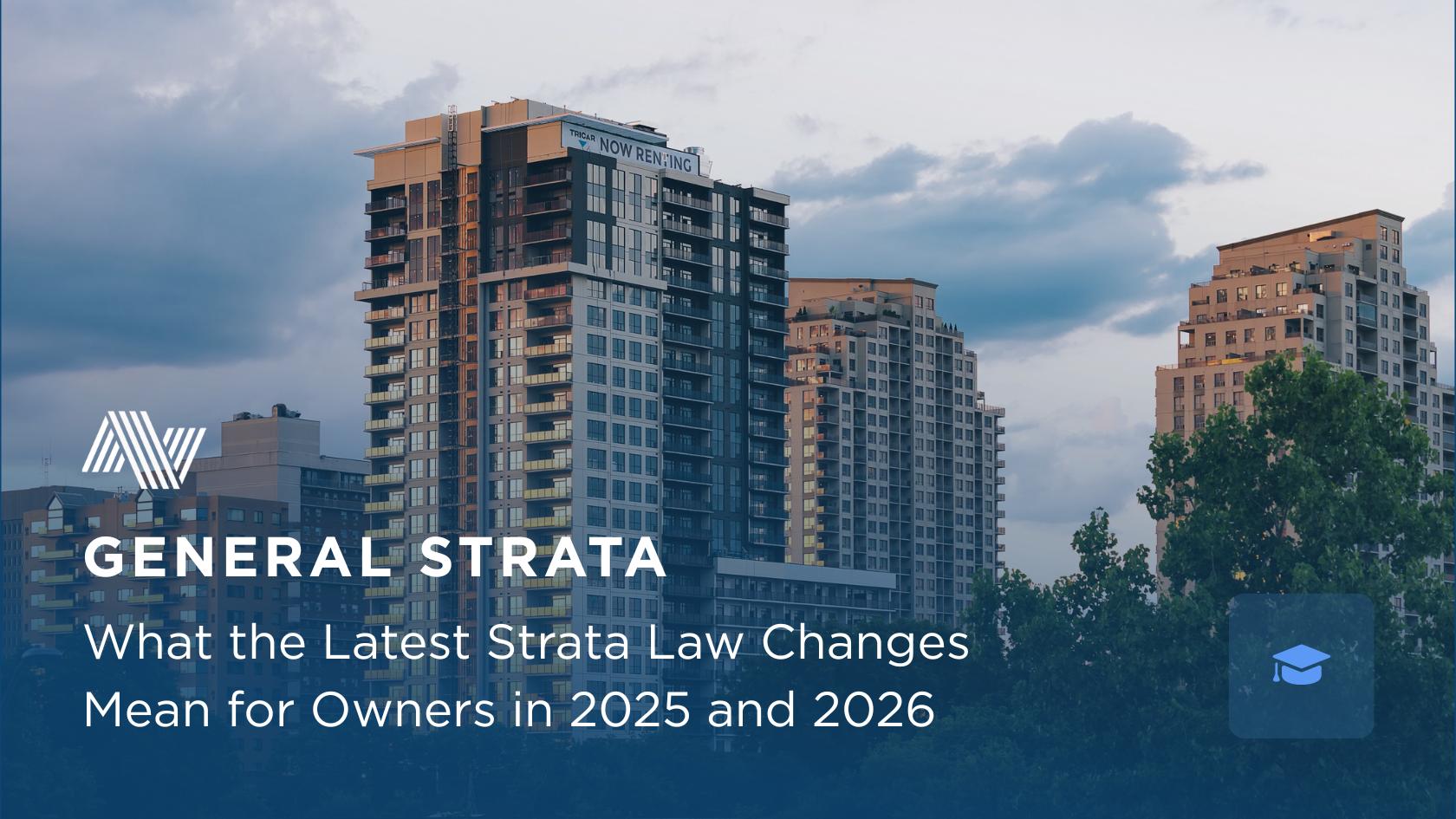Strata Committee: Committee Roles and Responsibilities
Note: This article is intended as a general guide only, and should not be taken as legal or professional advice. It’s essential to consult with a qualified professional or seek advice from your managing agent if you have specific questions or concerns about strata living.


The One-Minute Guide to Strata Committees
If you only read one section, here are the key takeaways:
What it is – The Strata Committee is a group of owners elected to manage day-to-day matters in a strata scheme.
Who’s involved – Usually includes a Chairperson, Secretary, Treasurer, and other elected members.
What it does – Handles finances, enforces by-laws, organises repairs, and makes decisions on behalf of the Owners Corporation.
How it works – Decisions are made democratically at meetings, with records kept of all resolutions.
Why it matters – An effective Strata Committee keeps the building running smoothly, protects property value, and ensures compliance with NSW strata law.
Every strata scheme in NSW needs a working body to manage its day-to-day affairs. While the Owners Corporation is the overarching legal entity, the Strata Committee carries out much of the practical work. From finances to repairs, it is the group that keeps the scheme running effectively.
Elected by lot owners, the Strata Committee ensures that budgets, maintenance, and by-laws are managed transparently and in line with the Strata Schemes Management Act 2015. For owners, tenants, and buyers alike, understanding how the Committee works is essential to understanding how the entire scheme functions.
This article covers the three pillars of Strata Committees:
- Roles & Responsibilities – what the Committee does in practice.
- Membership & Structure – who sits on the Committee and what their duties are.
- Meetings & Decision-Making – how the Committee makes and records decisions.
Roles & Responsibilities: Managing the Scheme
The Strata Committee has a broad mandate to ensure the strata scheme runs smoothly. Core duties include:
- Maintaining and repairing common property.
- Managing finances, levies, and budgets.
- Enforcing by-laws and resolving minor disputes.
- Ensuring compliance with the Strata Schemes Management Act 2015.
- Carrying out resolutions of the Owners Corporation.
Who Needs to Know This?
- Lot Owners – Essential: The Committee represents your interests and spends your levies.
- Committee Members – Critical: You must understand and carry out these responsibilities.
- Strata Managers – Essential: Often assist or guide Committees in fulfilling duties.
- Tenants – Helpful: Committee decisions affect building conditions and rules.
- Prospective Buyers – Valuable: A well-run Committee indicates good governance.
TL;DR: The Strata Committee handles day-to-day management of finances, property, and by-laws on behalf of all owners.
Read more: Owners Corporation: Understanding the Central Legal Entity].
Membership & Structure
The Committee is elected by owners at the Annual General Meeting (AGM). While size varies, three core roles are usually filled:
- Chairperson – Presides over meetings, ensures orderly conduct, and represents the Committee.
- Secretary – Prepares agendas, circulates notices, and keeps minutes of meetings.
- Treasurer – Manages accounts, prepares financial statements, and oversees levy collection.
Additional members may also be elected to share responsibility and decision-making.
Who Needs to Know This?
- Lot Owners – Essential: Elect Committee members who will represent your interests.
- Committee Members – Critical: Must clearly understand their roles to avoid overlap or neglect.
- Strata Managers – Essential: Support members by handling administration and compliance.
- Tenants – Helpful: Leadership impacts how rules and property standards are enforced.
- Prospective Buyers – Useful: Committee quality signals the overall health of the scheme.
TL;DR: The Strata Committee is made up of elected owners, typically including a Chairperson, Secretary, and Treasurer, supported by other members.
Read more: [Committee Meetings & Decision-Making in Strata].
Meetings & Transparency
For fairness and accountability, the Strata Committee must follow clear democratic processes:
- Meetings must be properly convened, with notice given to all owners.
- Decisions are made by majority vote of Committee members present.
- Minutes must be kept as an official record and made available to all owners.
- Financial records and correspondence should be maintained for transparency.
This ensures that decisions are valid, enforceable, and accessible to all stakeholders.
Who Needs to Know This?
- Lot Owners – Essential: Entitled to receive notice and access to meeting minutes.
- Committee Members – Critical: Must follow proper process to ensure decisions are valid.
- Strata Managers – Essential: Usually help manage meeting compliance.
- Tenants – Helpful: Decisions may directly affect use of common property.
- Prospective Buyers – Useful: Minutes reveal how well a scheme is managed.
TL;DR: The Committee must meet regularly, make decisions by majority vote, and keep accurate records to ensure transparency.
Why the Strata Committee Matters
The Strata Committee is the engine room of every strata scheme. A capable, well-functioning Committee ensures:
- Finances are managed responsibly.
- Maintenance and repairs are handled promptly.
- Rules are applied fairly and consistently.
- Records are transparent and decisions are valid.
- Owners, tenants, and buyers can have confidence in the scheme.
TL;DR: A capable Strata Committee ensures decisions are valid, finances are sound, and property values are protected.
Common Pitfalls for Committees
Avoid these issues that often undermine Committees:
- Failing to meet regularly or keep accurate minutes.
- Overstepping authority – making decisions that require a full Owners Corporation vote.
- Neglecting finances, leading to levy arrears or underfunded budgets.
- Ignoring maintenance until small problems become expensive repairs.
- Poor communication with owners, causing disputes and mistrust.
Next Steps
Want to keep learning? Explore these guides:
- [Owners Corporation: Understanding the Central Legal Entity]
- [Committee Meetings & Decision-Making in Strata]
- [Notices & Records in Strata Schemes]
Important: If you have concerns about your Strata Committee, speak with your strata manager or a licensed strata professional. For full details, consult the Strata Schemes Management Act 2015 (NSW).
Related Files










